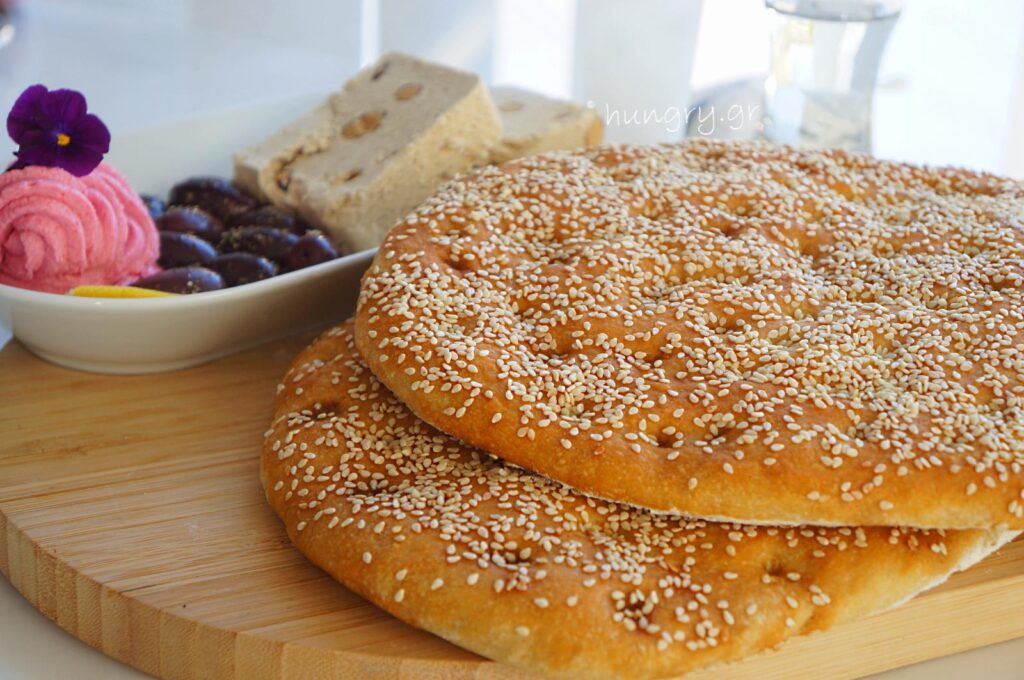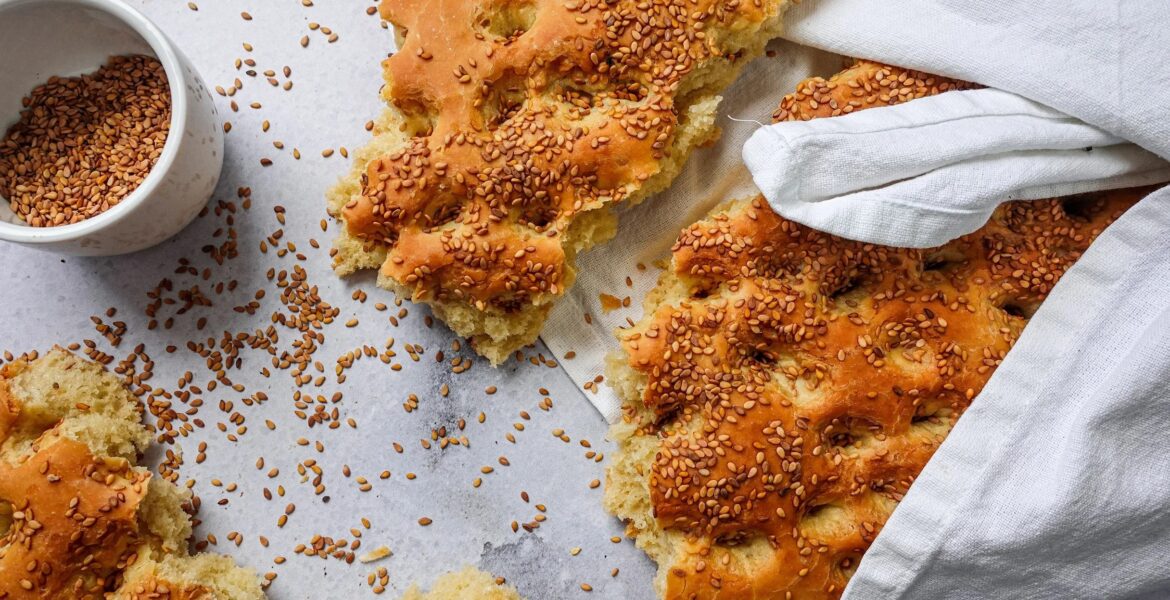Up to 7% more expensive, The traditional Lagana is expected to be more than 7% more expensive this year on Clean Monday, with its price ranging between 2.50-2.60 euros. At the same time, bakers in Thessaloniki declared that they are ready for Clean Monday as they will bake at least 500,000 pieces.
Speaking to AMNA, the president of the Thessaloniki Bakers' Association "The Prophet Elias", Elsa Koukumeria, said that the rumours about lagana costing 5 euros per piece were "unsubstantiated" and "dangerous".
She notes at the same time that "the dynamic return of consumers to traditional bakeries in the last two years indicates the trust that has been built between bakers and the public."
She said that consumers are showing in practice that they are fully aware of any markups bakers are forced to make due to price increases in general.
"We talk everyday. We know each other's pain and the financial difficulty that exists for all of us," she added.

With the price increases from March 2022 following one another, Koukumeria said: "The corresponding period last year (in view of Clean Monday ), the price of lagana was set at 2.30 to 2.40 euros per piece, with the 25 kg sack of flour being 12 to 14 euros."
"This year the cost to buy it starts from 19 euros and reaches 22 euros. And this is just one illustrative example," she added.
In general, as she explained, the raw materials in bakeries have risen in price from 30% to 50% and the only encouraging thing of the period, according to her, is the "slowing down of the increase in the cost of energy, from +180%, to + 90% today."
Among other things, she stated that 90% of consumers vote for the traditional lagana. On the other hand, the lagans available on the market 'stuffed' with - among other things - olives, peppers and mushrooms, which will be sold for 3.20 euros per piece, 20 cents more expensive than last year.
It is recalled that the bakers of the prefecture of Thessaloniki had for the first time increased the price of lagana in 2019, when they had previously kept it unchanged for eleven years.
Regarding the expectations for bakeries on Clean Monday, the president of "Prophetis Elias" appeared optimistic.
"I hope the weather is good so consumer can go out early in the morning. They will definitely go to their neighbourhood bakery to get at least one hot lagana. We Greeks remain loyal to traditions," she said.
Koukumeria pointed out that the preparation of the traditional lagana, which is done by hand, is a laborious 12-hour process and on Clean Monday, each oven will have to work from 9:00 p.m. on Sunday night until 3:00 p.m. at noon the following day in order to meet the demand.
It is expected that each store will sell on average at least 700 pieces.
This, according to her, makes it clear that the baker should pay triple the daily wage, "at a time when the profit margin for the baker is now zero".
The traditional custom of lagana
The traditional custom of lagana plays a leading role in the fasting table of Clean Monday. Lagana is unleavened bread, meaning it is made without leaven, and it appears to have been used by the Israelites on the night of their Exodus from Egypt under the guidance of Moses.
Since then, it was enforced by the Mosaic Law for all the days of the Passover festival, until Christ at his last Passover blessed the leavened bread.
The history of lagana runs through the entire nutritional tradition from ancient times to the present day.

The custom of lagana has remained unchanged over the centuries and it is customarily prepared with love by the neighborhood baker, crispy luscious and sesame seeds and consumed on Clean Monday, the First Monday of Lent.
As for the reason why this particular Monday is called "Clean", it is said that the name came from the habit that housewives had in the morning of this day to wash all kitchen utensils with hot water and ashes, as a "day of purification".

They were then hung in place where they remained until the end of the fast.
Also, on this day, everyone would go outside as a family, lay down on the ground and eat fasting foods such as halva, olives, tarama and - of course - lagana.
READ MORE: Mushroom Museum: Truffle hunting in Meteora during Carnival.

